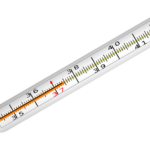Why should I file Chapter 13 if I have to pay all my creditors in full?
Because, I said, even a 100% repayment plan under Chapter 13 saves you money.
This client had a fistful of equity in a home; that equity made a Chapter 13 the required choice of chapter for the man.
But he struggled with finding the benefit of using Chapter 13 to manage his debt.
I never would have filed bankruptcy if I realized I had to pay everyone 100%.
So I fired up Excel and crunched numbers to quantify the answer to “why file“. In this client’s case, the answer was $20,000.
Chapter 13 saved $20,000 over 5 years when compared to paying all the creditors what they were owed outside of bankruptcy.
It’s all about the interest rate
At base, the $20,000 bankruptcy savings for this client flowed from the difference between the interest rate in bankruptcy compared to the interest rates on taxes and credit cards in the non-bankruptcy world.
When creditors are entitled to get interest on their claims in bankruptcy, the interest rate that applies is the federal judgment rate. When I did this exercise, the federal interest rate was 2.35%. Find today’s judgment rate.
By contrast, I assumed credit card interest rate of 23% and the IRS interest rate to be 6%.
13 crushes credit card debt
Paying the approximately $39,000 in credit cards in 5 years (the same duration as the Chapter 13 plan) according to contract terms cost $27,000 in interest! The total cost to pay off those cards was roughly $69,000.
The cost to pay off the same $39,000 in cards in Chapter 13 was $2250 in interest and $4121 in Chapter 13 trustee commission (assuming the maximum allowed rate of 10% of dollars the trustee receives.)
So, which would you rather pay to keep your house and get rid of your credit cards: $27,000 or $6365?
Point: Chapter 13
Taxes score a draw
The savings on paying off taxes through Chapter 13 was less dramatic.
We were looking at $46,000 in taxes, some priority, some older than that. To pay them off outside of bankruptcy would run up about $7300 in interest.
Paying those same taxes in Chapter 13 incurred $2550 in interest. But when you added the trustee’s commission to the bankruptcy interest, the transaction costs essentially equaled the cost of paying the taxes outside of bankruptcy.
Point: neither side
Snoozing creditors lose
The unpredictable further savings may lie in creditor ineptitude. That’s because only creditors who file a timely proof of claim in a bankruptcy case share in the payments.
In my experience, it’s the rare case when every creditor follows through and files a claim.
So my client will get a discharge of all his liability to creditors who don’t file claims, without paying them a cent.
Point: too soon to tell
Non economic benefits
Here, we looked only at the dollars and cents differences between paying everyone in bankruptcy or outside of bankruptcy.
Not visible in a spreadsheet is the reduced stress that Chapter 13 brings, by corralling all creditors in a single proceeding and having the law to back you up on the schedule on which they are paid.
Chapter 13 saves money and keeps you in control of your assets, protected by law, while you pay off what you owe.
More
How Chapter 13 can save your house






